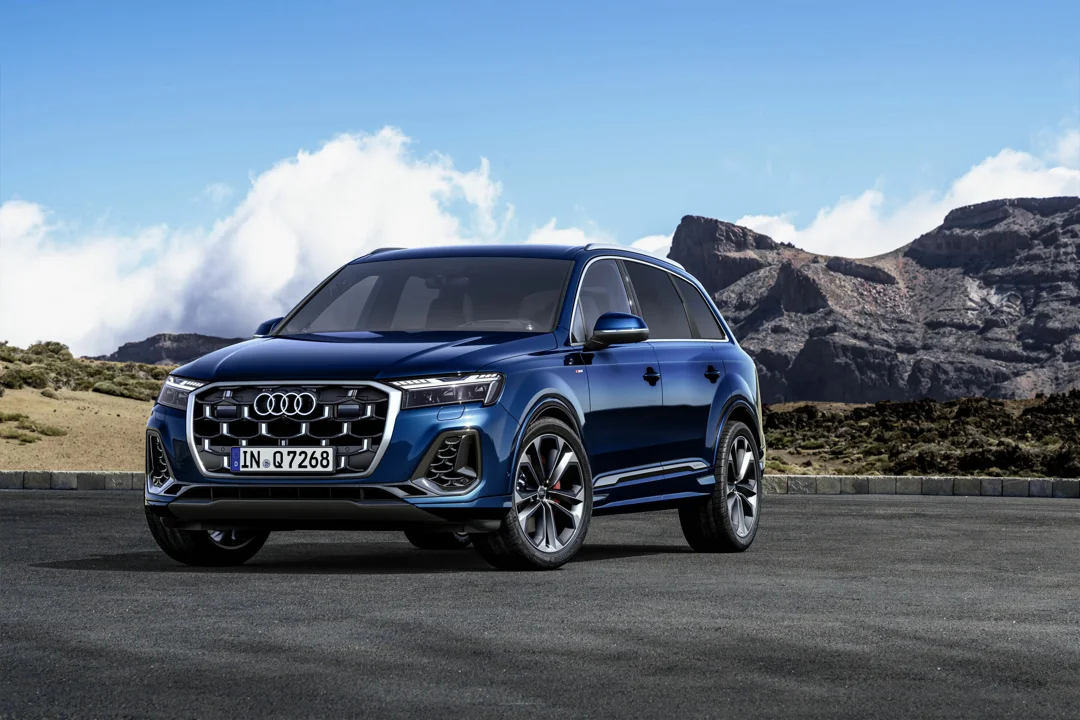What is the mileage of Audi Q7?
The Audi Q7 offers different mileage figures depending on the fuel type and transmission. The manual petrol variant delivers up to 0 km/l, while the automatic petrol variant offers up to 11 km/l.


11 - 11 kmpl
Petrol Mileage
Automatic
11 kmpl
Premium Plus
11 kmpl
Petrol • Automatic
ARAI mileage
Monthly Fuel cost for 40km/day₹10,339
Bold Edition
11 kmpl
Petrol • Automatic
ARAI mileage
Monthly Fuel cost for 40km/day₹10,339
Signature Edition
11 kmpl
Petrol • Automatic
ARAI mileage
Monthly Fuel cost for 40km/day₹10,339
Technology
11 kmpl
Petrol • Automatic
ARAI mileage
Monthly Fuel cost for 40km/day₹10,339
Maintain your Audi Q7 in top-notch condition by regularly servicing the vehicle.
Be gentle with the accelerator pedal, and avoid sudden acceleration.
Maintain the optimum tyre pressure in your Audi Q7.
Maintain your Audi Q7 in top-notch condition by regularly servicing the vehicle.
Be gentle with the accelerator pedal, and avoid sudden acceleration.






The Audi Q7 offers different mileage figures depending on the fuel type and transmission. The manual petrol variant delivers up to 0 km/l, while the automatic petrol variant offers up to 11 km/l.
The Audi Q7 delivers excellent fuel efficiency in city conditions. The manual petrol variant achieves up to 0 km/l, while the automatic petrol variant delivers up to 11 km/l under typical city driving conditions.
The Audi Q7 manual transmission offers up to 0 km/l, while the automatic transmission delivers up to 11 km/l. The difference is minimal, making both options fuel-efficient choices.
The mileage of Audi Q7 can be affected by various factors including driving conditions, traffic patterns, vehicle maintenance, tire pressure, and driving style. Under optimal conditions, you can achieve up to 0 km/l with manual transmission and 11 km/l with automatic transmission.
Yes, the Audi Q7 is quite fuel efficient. It delivers up to 0 km/l with manual transmission and 11 km/l with automatic transmission, making it an economical choice for daily commuting.
Discover. Decide. Drive.
Explore at your pace, with expert recommendations if needed. Finalise and book your car at the best price.
Financing the right way
Access the best loan options with hassle-free, paperless financing.
Prepare to drive
Schedule delivery for your special day and track updates effortlessly.Schedule delivery for your special day and track updates effortlessly.